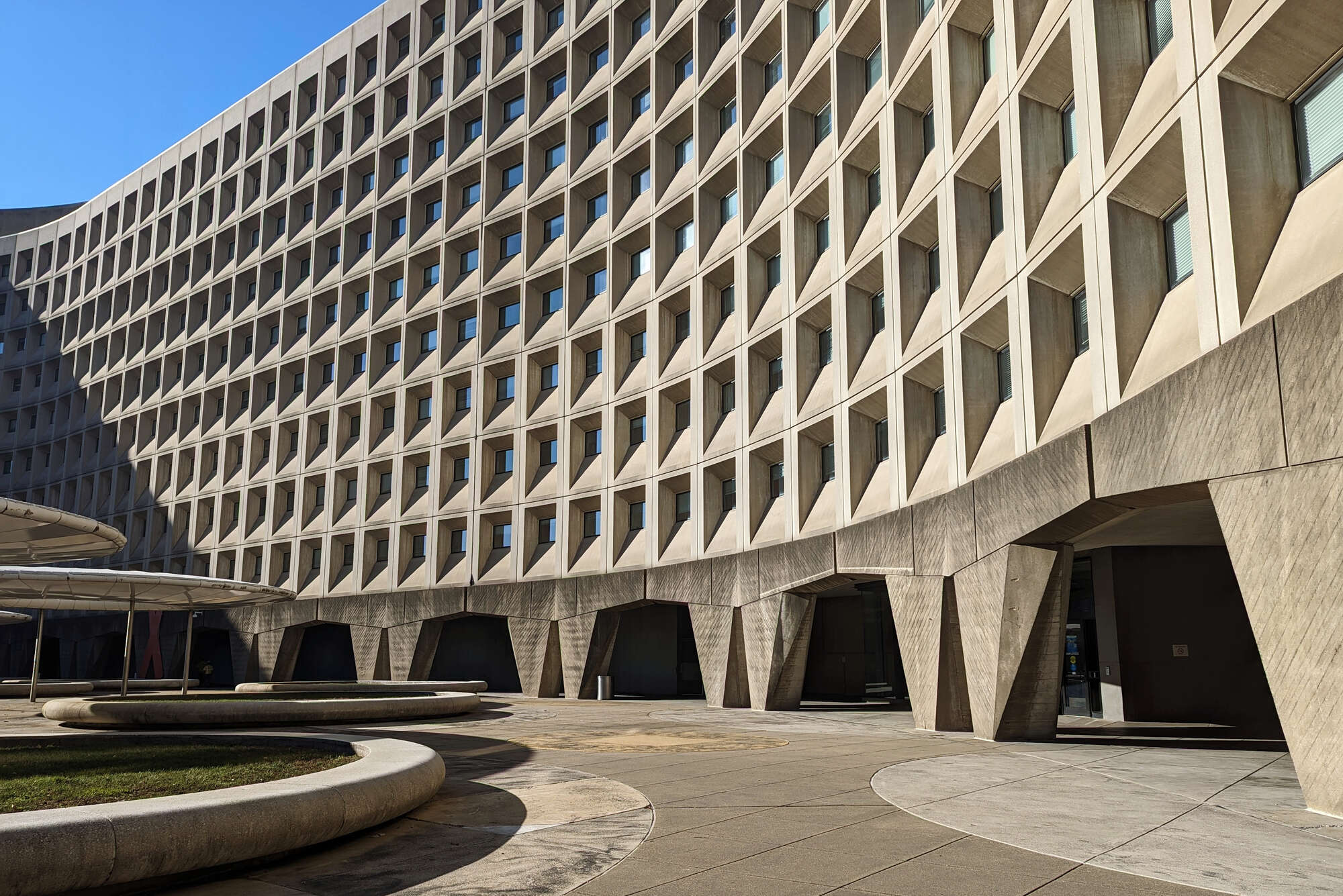[ad_1]

The Department of Housing and Urban Development is planning to move out of its downtown Washington, D.C. headquarters, as the Trump administration plans for a massive downsizing of federal office space.
The General Services Administration is once again adding HUD’s headquarters, the Robert C. Weaver Building, to a growing list of federal buildings marked for “accelerated” sale or disposal.
Plans for a new HUD headquarters aren’t clear yet. GSA said in a press release Thursday that the “timeline and final location are still under evaluation,” but said keeping the department in the D.C. metro area “remains a top priority.”
Last month, GSA added HUD’s headquarters — and the headquarters of more than a dozen other agencies — to a list of 440 “non-core” federal buildings considered for sale or disposal.
GSA quickly deleted the list, but recently posted a new list with about two dozen federal properties marked for “accelerated disposition.” GSA real estate officials plan to update the disposal list weekly.
HUD Secretary Scott Turner said in a statement that the department is focused on “creating a workplace that reflects the values of efficiency, accountability, and purpose.”
“We’re committed to rightsizing government operations and ensuring our facilities support a culture of optimal performance and exceptional service as we collaborate with our partners at GSA to deliver results for the American people,” Turner said.
Even with HUD employees returning to the office full-time, GSA said the department’s Brutalist headquarters is only at half its total occupancy.
That occupancy level falls short of a 60% minimum standard former President Joe Biden signed into law before leaving office.
Biden signed the Utilizing Space Efficiently and Improving Technologies (USE IT) Act in January, requiring GSA and the Office of Management and Budget to reduce or consolidate space if federal building utilization rates fall below 60%.
It also falls short of a new 80% occupancy standard that GSA’s Public Buildings Service is setting for all federal buildings.
GSA is looking to cut about half of all federal building space, with a “disproportionate” level of cuts coming from office buildings in D.C.
GSA said HUD’s 57-year-old headquarters faces more than half a billion dollars in deferred maintenance and modernization projects, and costs $56 million a year to operate.
GSA Administrator Stephen Ehikian told employees in a recent town hall meeting that the federal real estate portfolio faces a $24 billion backlog in deferred liabilities and “is getting worse.”
“Instead of hoping that we get more money from Congress — hope is not a strategy — I think this is us thinking differently of how to reduce these liabilities on our balance sheet,” Ehikian said.
GSA’s Public Buildings Service Commissioner Michael Peters said the maintenance backlog means the agency can’t address “substantial leaks” or “unsafe conditions” in many of the buildings it owns.
“A lot of our buildings are really in very, very poor shape. They are not the type of space you would want to occupy or be in,” he said.
HUD detailed plans to shed a considerable amount of office space under the Biden administration — but in a more gradual process than what the Trump administration is seeking.
Last August, HUD told OMB it would eliminate up to 60% of its total office space footprint by 2038.
Under this proposal, HUD would have consolidated four D.C. satellite offices into its downtown headquarters building.
GSA is looking to move away from owning federal office buildings. Instead, most federal employees would work in leased space.
“We don’t need to own office buildings. We need the flexibility of leasing, which allows us to upsize or downsize as needed, depending on space requirements,” Peters said.” It lets us move more easily. They can take care of the building, where we historically haven’t had the resources to do so.”
Peters said in a statement that GSA supports HUD’s decision to “exit a building with significant deferred liabilities in favor of a more appropriately sized, better equipped, and maintained space that will enable the HUD workforce to fulfill its important mission.”
Bloomberg first reported HUD’s plans to move out of its headquarters.
If you would like to contact this reporter about recent changes happening in the federal government, please email JHeckman@FederalNewsNetwork.com or reach out on Signal at: JHeckman. 29
Copyright
© 2025 Federal News Network. All rights reserved. This website is not intended for users located within the European Economic Area.
[ad_2]
Source link

